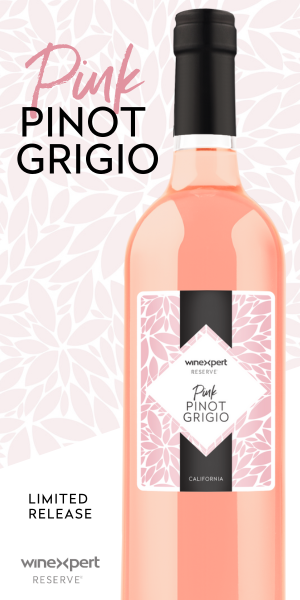Passion Fruit Wine
Q: Have you had any experience making wine from passion fruit concentrate? It’s hard to get any kind of concentrate here that is “pure”. But I did find some passion fruit concentrate in 500-mL bottles here in the Philippines. Directions are to add four bottles of water to one bottle of concentrate. Any thoughts about other fruits to add, such as guava, mangoes or lychees?
— Larry Cummins • Negros Oriental, Philippines
A: Well, I will admit I have never made a passion fruit wine (living in Napa, those pesky grapes just seem to be the most convenient sugar source at hand) but I will give you what advice I can. Passion fruit (or Passiflora edulis) is a popular worldwide flavor. The fruit is eaten in desserts and salads and the juice is made into popular juice drinks and cocktails. Its acidity (pH range 2.8–3.2) and low sugar content (15 Brix +/-) are the main winemaking challenges you will face.
You will have to dilute your concentrate and add some additional sugar in order to target a pH 3.3 or above as well as 22–24 °B. Adding water will do a good job of bringing your acid levels down though because I don’t know the concentration of your bottle, it’s hard to say how much to add. That’s where your handy hydrometer can come in. As far as fruits to add, I would go with something lower acid (like apple juice) or even red grape juice (or concentrate), which will benefit your fermentation by providing a more complete nutritional structure (like essential amino acids) as well as more typical “wine” flavors. Sometimes an all-tropical fruit fermentation can really spin off some odd aromas and using at least a little bit of grape juice or grape juice concentrate will get you a beverage more like you would expect.
If you don’t use grape juice concentrate you may need to add a little bit of table sugar to get up to your desired pre-fermentation Brix. This is OK — one recipe I’ve seen for passion fruit wine says to add 2 lbs. (0.9 kg) of sugar for 7 lbs. (3.2 kg) of passion fruit, and add water to make up to a gallon (3.8 L) volume. It will be very important to add yeast nutrients to this must as tropical fruits have a very different nutritional profile than grapes, and most wine yeasts have adapted to grape juice-based conditions. Check with your yeast nutrient supplier, but typical addition amounts include 1 tsp. per gallon (3.8 L). I would also be on the watch for weird hazes after fermentation and maybe think about fining with bentonite, which will pull out extra proteins. You also may want to look at pectolytic enzymes used before and possibly after fermentation because many fruits contain high levels of pectin which have problems settling out clear in storage. I wish you all the best of luck with your tropical fruit wine fermentations, and I hope that someday I will get to taste a passion fruit wine!


